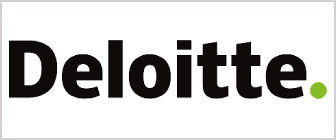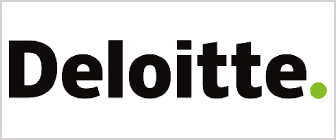What is the most significant development in your region/jurisdiction's tax practice in the past 12 months?
There has been a strong and continuing trend towards the need for greater global management of disputes across jurisdictions and subject matters. Clients are beginning to centralize the conduct of multiple matters throughout the world, and in response Deloitte is pivoting towards greater levels of coordination, a need to create teams from multiple jurisdictions and work towards solutions that are acceptable across multiple tax authorities, as our clients look to protect their brand and reputation as highly respected and trustworthy global corporate citizens.
This is not an unexpected phenomenon given developments in recent years such as the move towards greater transparency, common reporting standards and approaches to disclosing tax positions, information sharing and joint audit activity across revenue authorities.
How do you anticipate that change impacting your work and the market moving forwards?
As tax controversy professionals, our way of approaching problems has needed to lift upwards from the immediate issues and challenges to the broader objectives of our clients. This means a greater focus on understanding implications across different markets, dealing with experienced professionals in other markets and synthesizing content despite inherently competing positions.
What was previously a predominantly technical and administrative skillset is shifting towards more focus on project and stakeholder management and problem-solving abilities.
Work is becoming more variable and the role tax controversy professionals play is more likely to change across client engagements. There seems to be a greater understanding by clients of the technical issues raised in each market, so that greater value is placed on strategy, ability to manage multiple authorities' challenges and structured planning for dealing with the dispute lifecycle.
What impact do you see the COVID-19 pandemic having on your work directly and on the wider tax environment, in both the short and long term?
COVID-19 has caused a slowdown of activity across various markets. Revenue authorities have played a crucial role in administering systems and relief packages in response to the impacts of the virus and this has deferred their focus on planned-out review programs. It is expected that this will mean a wave of activity as the world re-emerges from the current disrupted environment. Coupled with a need for each country's tax administrations to assess taxpayer performance during the impacted period, this will create high demand for tax controversy assistance.
Given the likely long-term implications of COVID-19 on things like remote working and digital retail, how do you see tax technology developing to accommodate this new reality and where do you think the next area of focus might be?
There is likely to be a heavy trend towards unified datasets being used by multiple professionals. Tax technology will need to develop quickly in order to be able to cope with multiple inputting users and ensuring the reliability of the data for multiple tax related uses
What potential other legislative changes are on the horizon that you think will have a big impact on your region/jurisdiction?
I expect that tax systems globally will need to pivot and adapt to the social and economic change caused by COVID-19. This will likely result in greater integrity measures, such as anti-avoidance regimes, to ensure tax systems are acting efficiently and the use of more principles-based legislative measures.
Further, there is likely to be a greater connection between tax legislative measures and foreign investment regimes as tax compliance and performance is given a more pronounced role as markets reestablish themselves.
What are the potential outcomes that might occur if those changes are implemented?
The industry will need to adapt through the delivery of a more proactive and multi-disciplinary approach to assisting clients. It will become imperative that tax controversy professionals work more closely with advisory professionals such that we will see greater crossover between the two sets of professionals. That is, advisory professionals becoming more alive to issues of potential complication and challenge in future, and tax controversy professionals more attuned to practical solutions and best practice steps to allow clients to proceed on transactions and business opportunities.
Do you think that change will have a positive effect on both your practice and the wider regional/jurisdictional market?
This should absolutely be the case. tax controversy professionals will be given the chance to experience new challenges across markets, work with a broader set of professionals and become involved much sooner in the business cycle.
This will lead to a more fulfilling career experience for tax controversy professionals and a more efficient approach to client problems, with a reduced chance of formal disputes.
What legislative changes would you like to see be implemented that you think would have the most positive effect on your practice and the wider regional/jurisdictional market?
It would be highly beneficial to see more standardisation of information requirements and tax evidentiary standards. This has taken place in an area such as transfer pricing, but could have greater application. This should also be coupled with greater "safe harbour" style measures to help keep on creating greater levels of materiality associated with revenue authority reviews, a concept common to the finance world but often overlooked in tax audits conducted many years after the underlying transactions and events.
Do you think something like that is likely to be implemented in the near future?
Unfortunately, not; this is a highly aspirational goal that is not easy in practice.
However, things will no doubt evolve as the competing tax systems become more aligned and greater reliance is placed on multilateral instruments and measures. It will be beneficial that decision makers and policy shapers have regard to not only the integrity components and abilities of these tools, but also the economic efficiency that can be added to the respective tax systems through simplification and standardisation and freeing up resources for economic growth and innovation.
What have been the biggest developments in tax technology and where do you think the next area of focus might be?
Tax technology has been very good at dealing with individual problems and using automation and data-analytics to simplify and make more efficient certain tasks. The tools have become very advanced and the increased familiarity using the same language and tools to address new problems assists in progressing onto increasingly more-complex applications.
The next area of focus will be on harnessing the power of data much more efficiently. By being able to draw on a unified set of reliable and quality data (one source of truth, for lack of better term), tax compliance and management will be revolutionised and more open to technology-based solutions, freeing up capacity, evolving roles and allowing tax professionals to be more involved at a strategic level within their organisations.


